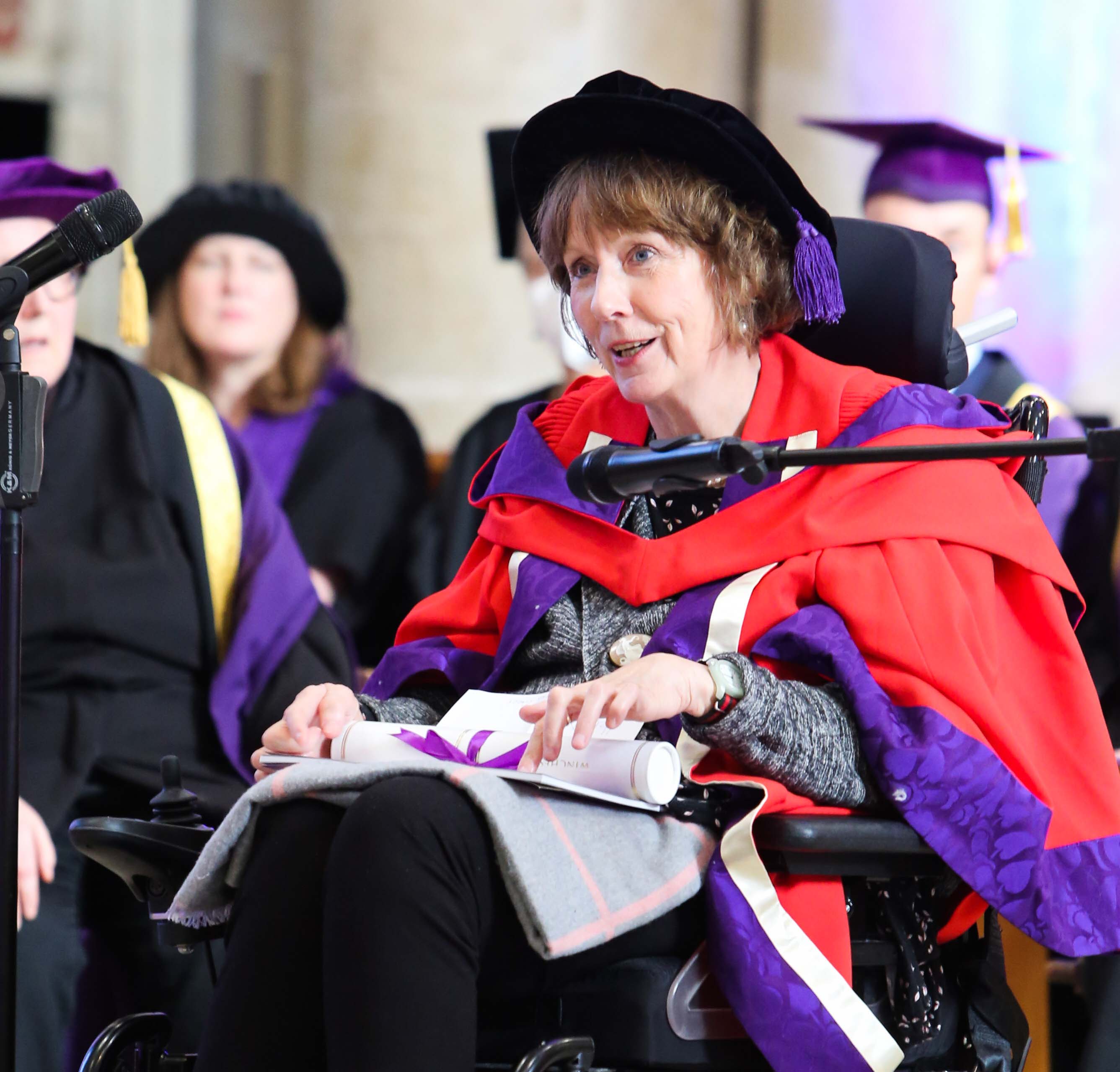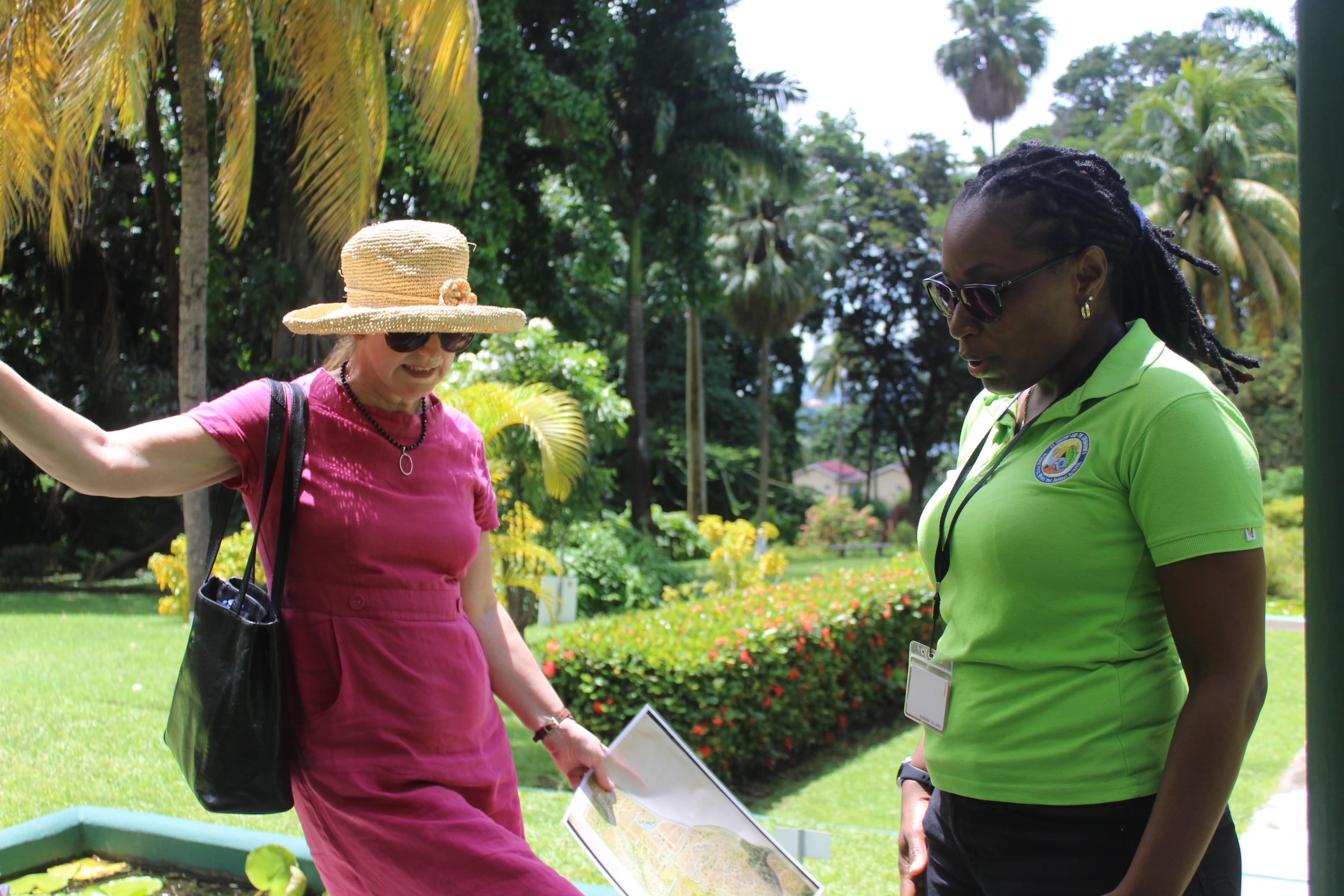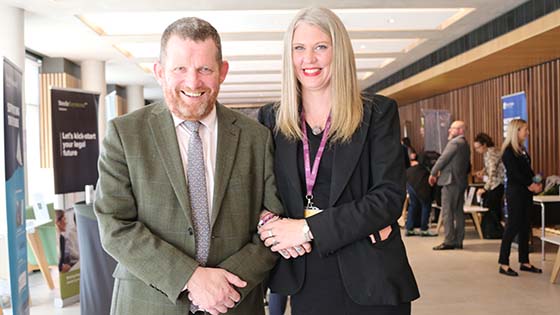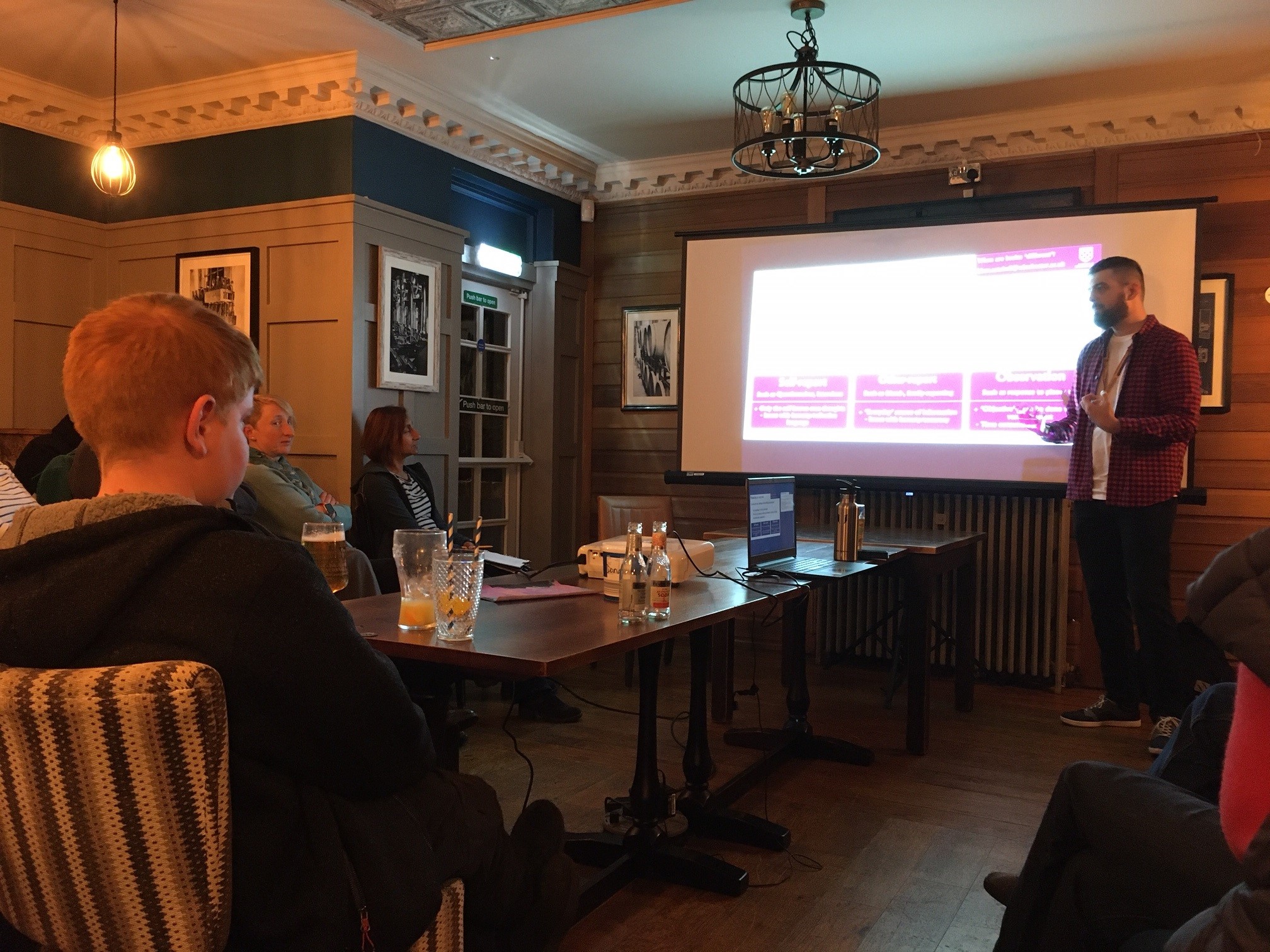October is one of our favourite months here at Winchester, not least because we celebrate Graduation and share in the success of all our students who have completed their studies.
Here are the month's highlights.

Over 2,000 students celebrated their academic achievements with their families and friends at Graduation ceremonies at Winchester Cathedral between 18 and 21 October.
Inspirational individuals receiving honorary degrees included award-winning journalist Melanie Reid MBE (pictured above), Winchester-based novelist and former graduate of the University Claire Fuller, and British Paralympian Aaron Phipps MBE who all received Honorary Doctorates. Find out more.
A new set of best practice guidelines aimed at ensuring that participants in heritage projects and the historic remains involved are well supported during projects was launched on World Mental Health Day (10 October 2022).
Taking part in heritage projects has become a popular way to improve mental health and wellbeing. Now, a team of researchers led by Dr Paul Everill and colleague Dr Karen Burnell at Solent University, Southampton, have drawn up the AMPHORA guidelines, which are designed to unlock the full therapeutic potential of the historic environment, through Authentic and Meaningful Participation in Heritage Or Related Activities (AMPHORA), in which participants are contributing fully to projects which, in turn, are able to provide the right support and safeguarding. Find out more.

A new University scholarship scheme to support students from ethnic minority groups to study on Education and Health and Wellbeing degree programmes was announced during Black History Month
Under the BECOME scheme, up to 20 undergraduate students from racially minoritised backgrounds, who are domiciled in the UK, will receive £500 per year of their studies and £500 when they graduate. Each scholar will also receive academic life coaching and have access to specialist mentoring to support their academic studies, placements and career progression. Find out more.
In a blog to mark Black History Month, Dr Christina Welch (pictured above) unearthed the contribution of indigenous and enslaved African knowledge systems to the St Vincent Botanical Garden under Dr Anderson (1785-1811). Thanks to a collaborative project funded by the Arts and Humanities Research Council, after more than 200 years, the Garden has access to its history. Read the blog.
Professor Chris Mounsey drew on his own experiences as a partially-sighted Professor in Eighteenth-Century English Literature at Winchester to tell the story of Nicholas Saunderson, in a talk at the Wellcome Collection in London.
In The Blind Teacher, Chris explored a set of lecture notes by Saunderson - who was a Professor of Mathematics at Cambridge University between 1711 and 1739 - on Isaac Newton's 'Principia Mathematica', held within Wellcome Collection and other texts.
Through his own experience of sight loss, Chris also introduced his own concept of 'variability' as a way of understanding disability. Watch Chris's lecture on Youtube above. Find out more.
Dr Nicola Puckey, Senior Lecturer in English Language, gave evidence to the opening hearing of the Women and Equalities Select Committee's inquiry into misogyny in music. Following written evidence in the summer, Nicola presented oral evidence at the opening hearing this month, providing expert testimony regarding lyrical content and misogyny and on equality and diversity.
She was asked specifically about misogynistic content of songs like Blurred Lines. In answer to a question about whether female music can be seen as innovative and creative, she highlighted that there are innovative female-led acts such as Wet Leg and they are being found through social media.
The transcript from the session is available here and a link to watch the proceedings is here.
Dr Matt Smith, Senior Lecturer in Sport and Exercise Psychology, featured in a BC podcast this month. Matt was interviewed for The Sports Desk podcast How do we stop the managerial Merry-Go-Round?
With the average tenure of a Premier League manager decreasing, what can be done to stop the constant change. Can someone perform to the best of their ability with the threat of losing their job hanging over them? Matt commented on how different personalities react to the pressure of having to perform at the very highest levels.
Listen: BBC Sounds - The Sports Desk, How do we stop the managerial Merry-Go-Round? (Matt is introduced at c 7.00 minutes)

Students interested in pursuing a career in the legal field had an opportunity to meet, talk and network with a range of legal professionals at the annual Law Fair organised by the student Winchester Law Society, which took place in the West Downs Centre on 11 October.
Firms including Dutton Gregory, Capsticks, Trethowans, Shoosmiths, Steele Raymond, College Chambers and Bramsdon and Childs were all represented. Dean of the Faculty of Law, Crime and Justice Professor Bill Davies joined Law Society President Kerry-Anne Lacken at the event (both pictured above).
We were honoured to welcome eminent climate scientist Professor Bill McGuire to deliver a lecture titled Hothouse Earth: an inhabitant's guide.
Professor McGuire explained the science behind the climate crisis and presented a blunt picture of the sort of world our children will grow old in and our grandchildren grow up in.
"The next ice age has probably been postponed, even though we were well on our way to the next one," the climate scientist told his audience of staff, students and members of the public. He discussed devastating effects such as dramatic sea level rise, tsunamis, landslides and the possible shutting down of the already weak AMOC (Atlantic Meridional Overturning Circulation, a system of ocean currents), which would cause cooling and sea level rise in the Northern Hemisphere. He also highlighted social effects, such as increased conflict and war, famine and forced migration as vast areas of low-lying land become submerged.
"Climate scientists don't shout loudly enough and politicians don't want to know," he said, urging people suffering from climate anxiety to become climate activists and swell the grassroots ranks calling for urgent action.

This month saw the launch of a new Science Café in Chandler's Ford. The series was kick-started by Winchester psychologist Dr Liam Satchell, who informed and entertained in equal measure, despite tackling the complex subject of the brain.
Liam, whose research interests range from individual differences and mental health to animal welfare and forensic psychology, asked such questions as: "Are there notably differences between the brains of different groups of people?" and shared fascinating information such as that sea anemones can get depressed and that the gut has its own 'brain'.
Science Cafe organiser Maud Attrill said: "The Science Café is a great opportunity to promote science in a relaxed setting, and it is fantastic that the University of Winchester is helping to enable it."
Science Café events take place bi-monthly in the King Rufus pub, with a 7pm start. Entry is free and no booking is required. The next event on 11 January 2023 will feature Winchester geographer Dr Darren Jeffers who will focus on biodiversity in a tlak titled The pernicious effects of climate change on biodiversity.
We marked National Poetry Day on 6 October by sharing poems written by two of our talented alumni of our BA (Hons) Creative Writing degree courses.
Poems by Georgia Hilton and Gabrielle O'Connell feature in the University of Winchester poetry anthology The Lost Art of Staring into Fires (Valley Press, 2022), the first collection from the University's vibrant poetry scene. Edited by Glenn Fosbraey, it's available to buy here. Find out more.
Press Office | +44 (0) 1962 827678 | press@winchester.ac.uk | www.twitter.com/_UoWNews
Back to media centre